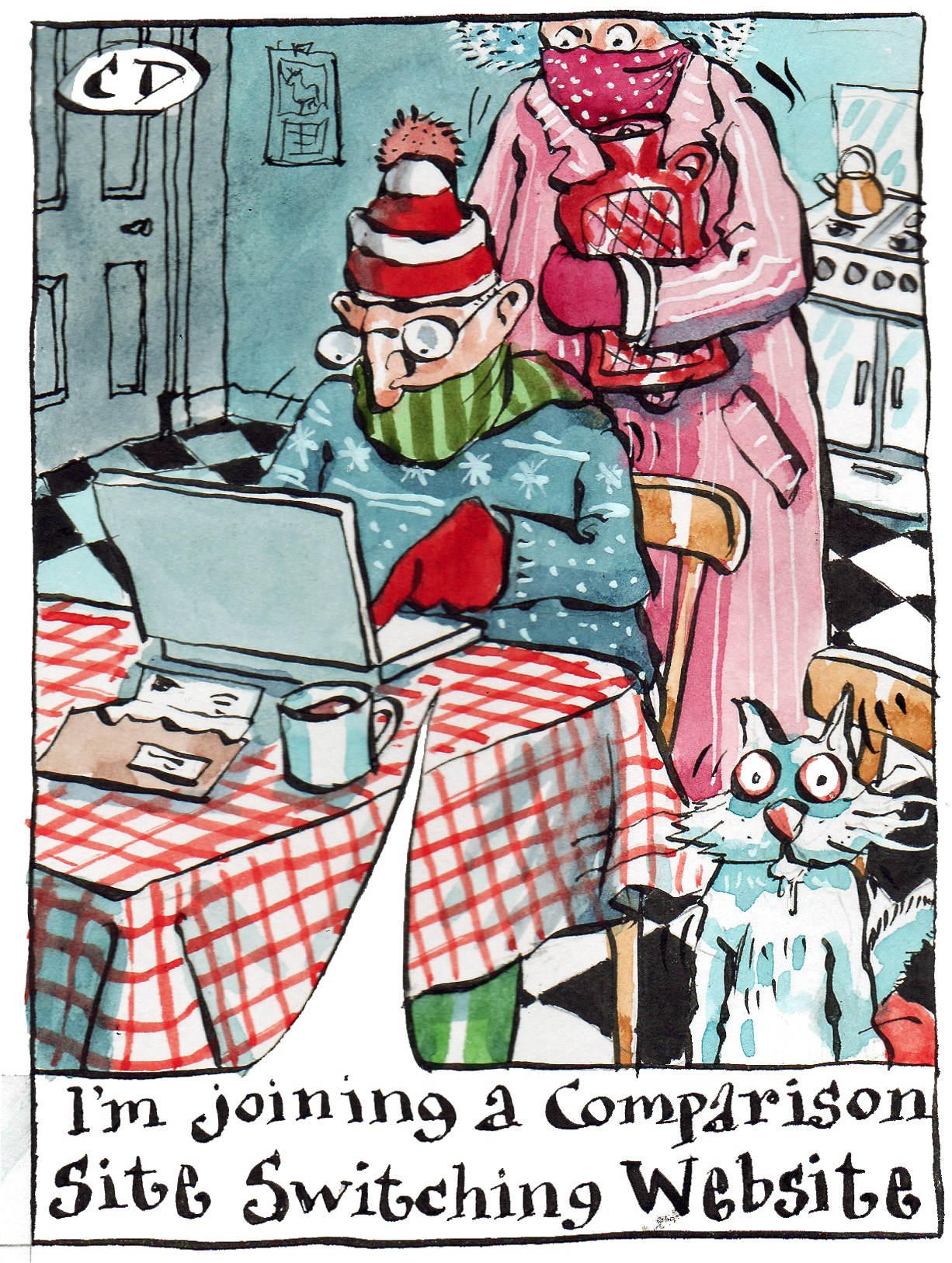In a week during which knives have been pulled at petrol stations and police marksmen have slaughtered a white stag on the streets of Liverpool, the collapse of my gas supplier is probably small fry.
Lenin once said that society is only ever three meals away from chaos; I sometimes wonder if we’re only ever three hysterical “DON’T PANIC!!” tweets from Nadine Dorries before we witness the complete disintegration of British civilisation.
Unlike the forecourt fights and the felling of a noble creature from the Wilton Diptych, the failure of my energy company has been bloodless. Indeed, to give credit to the regulator Ofgem, it has been pretty smooth.
I am one of (at the last count) the 1.7 million households whose energy company has gone bust in recent weeks. Ofgem is transferring me over to British Gas. My supplier was called People’s Energy, a company that promised to break the grip of the Big Six and return the bulk of its profits to customers. That went well.
How we have ended up with so many consumers signed up to small suppliers that have gone to the wall is up for debate. Remainers claim that the fact that UK gas prices are significantly higher than the rest of Europe is not correlation but causation. There is a grain of truth to that but only a small one.
The government’s complete failure to build any new nuclear power stations, our shutting down of gas storage facilities, last winter’s cold weather stretching into April, our reliance on imported gas controlled by Vladimir Putin and the lack of wind have all played significant roles. So too has the arrival of a raft of tiny suppliers, set up by people from their front rooms with little more than a website and a licence from Ofgem.
One group that has escaped blame, however, is the mechanism that made all this possible: switching websites. As a consumer journalist it is sacrilegious to question the glory of comparison sites. They arm citizens with information, they empower householders to grab a bargain.
I wonder, though, if they have become part of the problem. Utility companies responded to the dominance of comparison sites about 15 years ago by increasingly promoting their tariffs on price and price alone. Pence per kilowatt-hour is easy to tabulate; good customer service is not. It’s the Ryanair business model: sell a ticket to Budapest for £4.99 (that really is an option right now) but charge up to £81 for luggage, a nominated seat, priority boarding and the like.
The comparison sites have done very well out of encouraging us to switch and taking a fee. Take the listed MoneySupermarket. Last year its turnover was £345 million and it made an operating profit of £108 million. That’s the sort of profit margin most industries would die for.
Of course switching takes effort in hunting rival comparison sites to find the best deal. Which is why I became a huge fan of Look After My Bills (LAMB). It is an autoswitcher: sign up once and it promises to switch you automatically whenever it finds a better deal, as long as that deal will save you at least £50.
When I joined two years ago I saved a stonking £448 on my annual bill and its customer service was slick. I was so impressed I featured the company on the Channel 5 programme The Gadget Show, where I champion money-saving apps and websites. The price comparison site GoCompare was impressed too: it snapped it up for £12.5 million.
The first company LAMB switched me to was Utility Point, then last year I was moved to People’s Energy. I did not need to lift a finger, except to send the odd meter reading and feel smug at getting lower bills for little effort. Both suppliers went bust.

How many of Utility Point’s 220,000 customers and People’s Energy’s 351,000 customers were acquired via Look After My Bills and rival autoswitchers? We don’t know. But we do know that all these small, cheap suppliers rely on switching websites to win them customers. And switching websites spend a fortune on marketing, complete with infuriating meerkats and opera singers.
How much due diligence did LAMB and the other autoswitchers do before moving customers to companies that lacked the financial robustness to cope with a surge in gas prices? LAMB insists that it does thorough checks, but also suggests that Ofgem should conduct some stress-testing on these start-ups too.
The fact that the Big Six refuse to sign up to autoswitchers makes the problem worse. It means that consumers are moved to challenger utility companies rather than the legacy suppliers even if, in fact, British Gas might be offering as good a deal. It has helped to crystallise the idea that the only good deal to be had is with a small supplier. That a cheeky little start-up with a snappy slogan and nice website is, by default, a consumer champion.
After all, is the gas or electricity supplied by EDF or SSE any different from that supplied by Avro or People’s Energy? No. It is the very definition of a commodity. Until the gas runs out, and you realise that you need a supplier that is reliable, not just cheap.
The price comparison sites or Look After My Bills are not to blame for the chaos in the market. They would not be in business if it were not for the legacy utility companies treating loyal customers like doormats. But in our rush to secure a better deal perhaps we forgot the difference between price and value.
Harry Wallop is a consumer journalist and broadcaster. Follow him on Twitter @hwallop
Sathnam Sanghera is away
